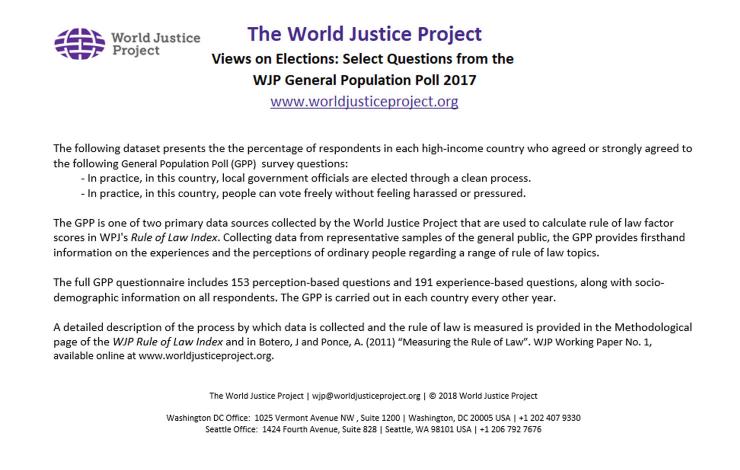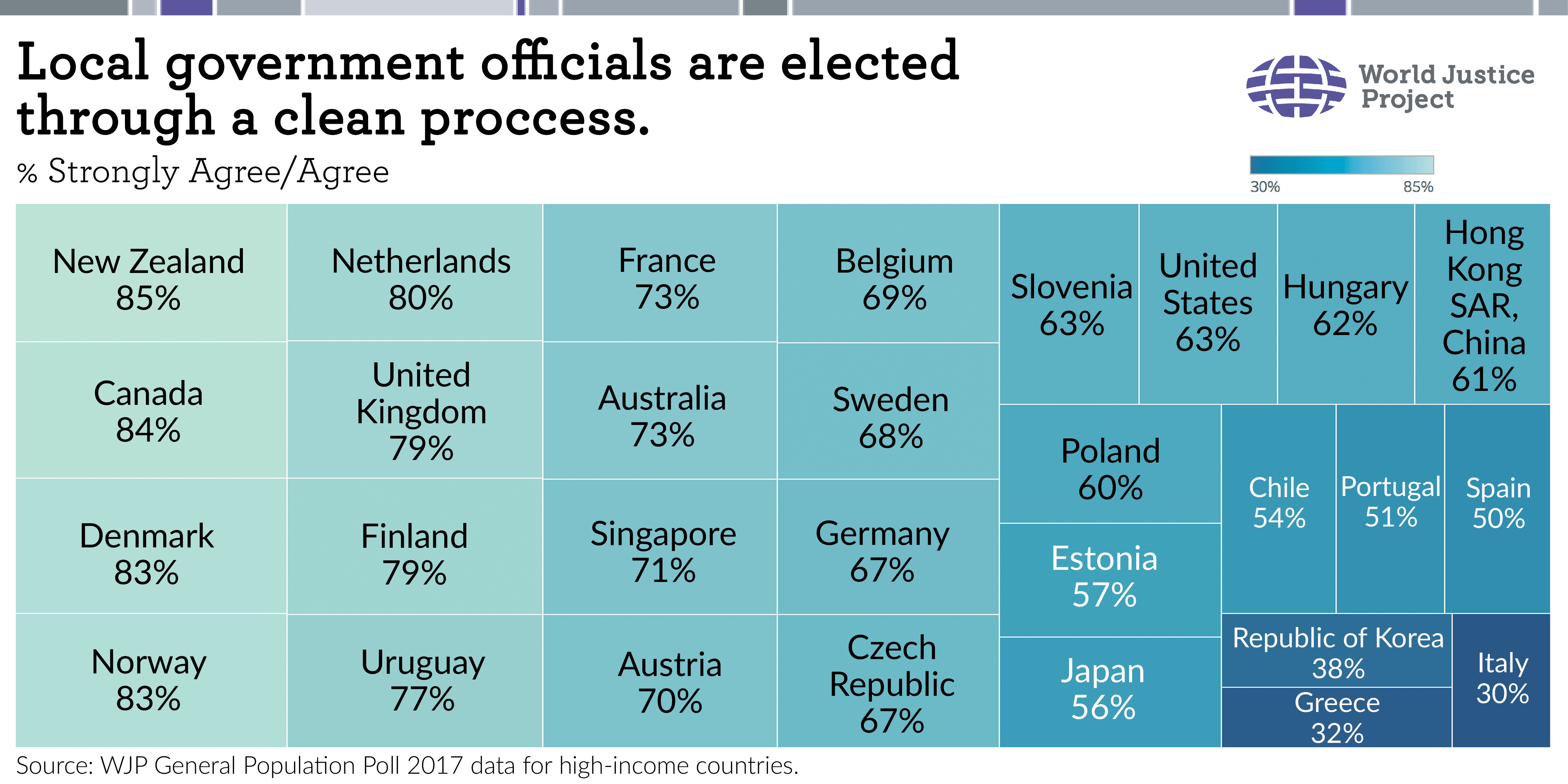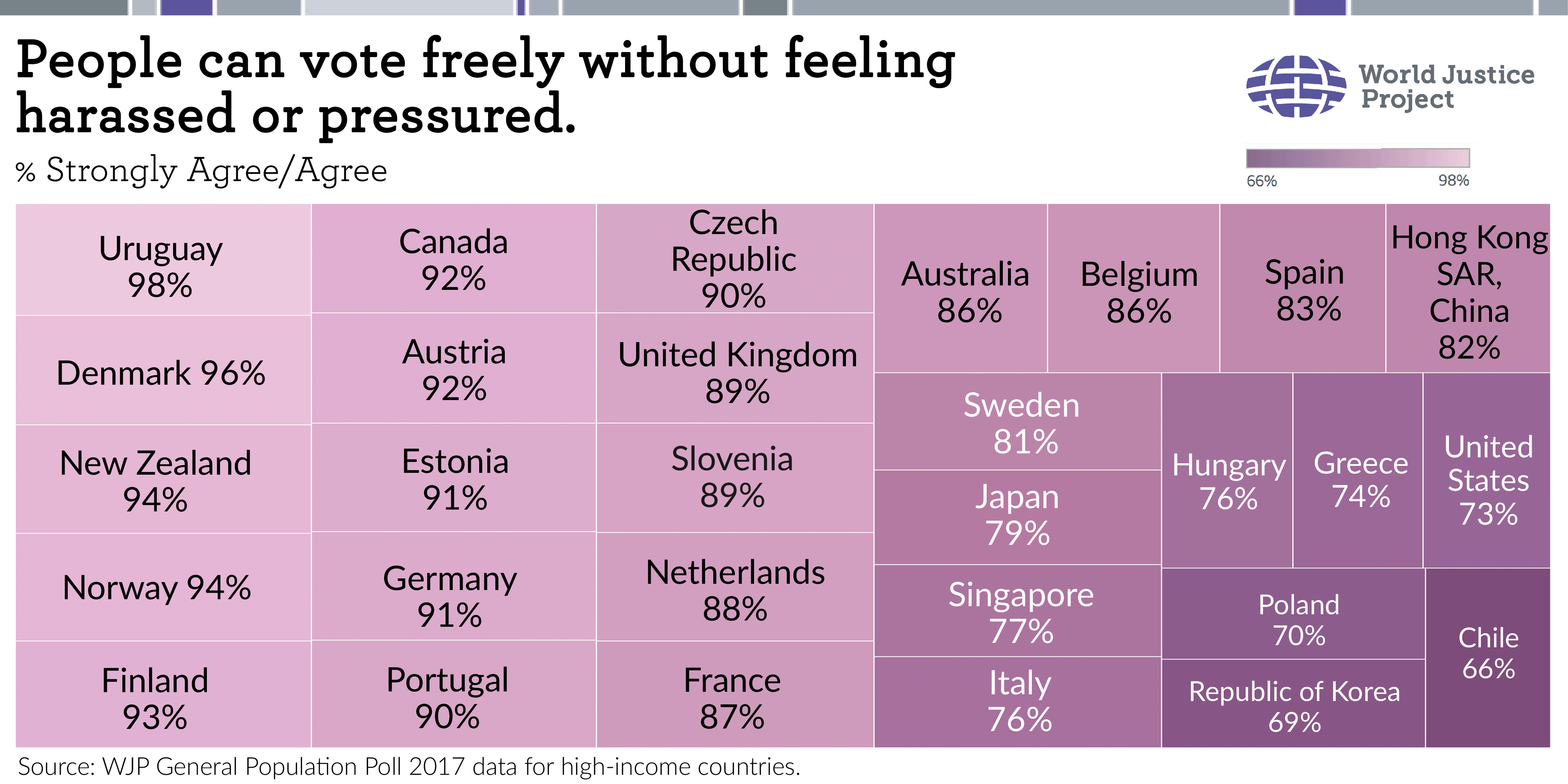
The 2018 midterm elections in the U.S. have come and gone. As the think pieces roll in on the who, where, and why of voter turnout and civic participation, it’s worth reflecting on perceptions of free and fair elections. In America and countries around the world, faith—or lack of faith—in a clean election process is an important contributor to the rule of law.

WJP's 2017 General Population Poll (GPP) survey data reveals that, among high-income countries, New Zealanders are most likely to agree that local government officials are elected through a clean process, while Italian respondents are most likely to disagree.

Looking at regional peers, in Uruguay, 98% agreed that people can vote freely without feeling harassed or pressured, while only 66% in Chile agreed.
Want to take a closer look at the data? Download the complete data set for these select WJP General Population Poll 2017 questions and answers from high-income countries below.








